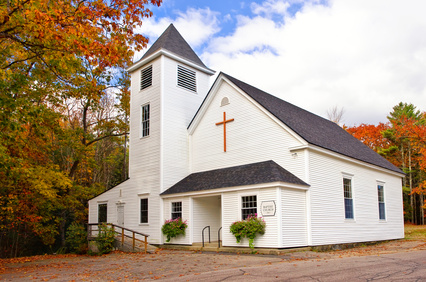
It seems every week a church contacts me to ask advice about church revitalization. I also frequently hear from pastors who are considering stepping into a role in church revitalization. I greatly appreciate the Kingdom platform God has given me, but sometimes it feels overwhelming, as if I have something to offer.
Frankly, I am still in the learning process.
But, we have learned a few things. And, God has graced us with some success – twice in church planting and twice in church revitalization.
I fully believe we need lots of church revitalization.
The problem for me is it seems people often start the conversation at the wrong place. They start with the how and I want to start with the why – or maybe the what.
When people start to talk about the how of doing church revitalization – the things we have done or haven’t done – I always feel like we are putting the proverbial cart before the horse. We need to talk first about what church you are going to attempt to revitalize – and why you are considering the move in the first place.
I think before you consider revitalization you need to first consider some broader questions.
Here are 5 questions I would consider before I would attempt to help revitalize a church:
Can this church be saved?
There is actually a more difficult question: Is the church worth saving? I know this is a hard question, and it may even make me seem very arrogant. You would have to know my heart behind the question and that’s extremely hard to do in a blog post.
But, the reality is there are some toxic churches in the world. I know churches who have never held on to a pastor for more than two years. They are brutal to pastors. They don’t want someone to help them grow they simply want someone to maintain things as they are, fill the pulpit three times a week, and visit them when they are sick. And, if you try anything else they will remind you they were there before you came and will be there when you’re gone.
What is the realistic potential even if the church is saved from eventual death? Will a pastor, or anyone with an outside perspective, be able to lead? Can changes actually be made? Nothing of value happens in church revitalization – or really anything organizationally speaking – without some change. Chances are good it won’t be popular. This is true in any church, but change is always necessary. The very word “revitalize” has a connotation of change.
Is this the right location?
Look at the demographics of the community. Does it, or are the people willing for it to, represent the community? If the community has changed demographics around them they may need to make changes for the community to see them as a vital part of the community.
The message doesn’t change. I’ll say that again for my friends who read into a post what they want – THE MESSAGE DOESN’T CHANGE. But, the demographics of communities change over time. People move. New people move into the community. If the church isn’t willing to embrace the unique needs of the community maybe there is a more receptive area elsewhere.
Bottom line – Are people willing to ask such hard questions? If not, it might be difficult to revitalize the church.
Is this the best use of resources?
Would Kingdom dollars be better spent elsewhere?
I know, again, it is a very difficult question. The fact is, however, the longer a church has been plateaued or declining, the longer – and harder – it will be to help the church grow again.
Another hard question – how many churches could be planted with the same resources and efforts? Is there a wiser stewardship for the Kingdom than this?
Now please understand, I believe in revitalization. I think established churches still play a huge role in the Kingdom – for so many reasons – but, you should be willing to ask the difficult questions or your chances of seeing progress will be limited.
In fact, these are bigger picture Kingdom questions I think we all need to be asking. In my strong opinion, we are sometimes too protective of what’s “mine” (in a local church) and not as concerned about what will have a greater impact on the masses. We want comfortable and familiar more than we are willing to sacrifice for the greater good of the Gospel.
Is everyone (or a majority) willing to pay the price?
It will be hard. Change will be difficult for people to accept. Revitalization is harder than planting, in my experience. Will change be accepted? Can you personally take the hits? Are the leaders of the church going to stand with you? Does your family fully support your decision and are they up for the challenge?
Granted, there will be people who simply don’t make the turn. With every decision you make as a church leader you are deciding who will sit in your church the next Sunday – and, with what attitude they will sit with when they do. We need to make good changes. I’ve written and spoke at conferences on this process, but make no mistake about it – to revitalize there must be some difficult decisions made. Is the church really up to this?
Are you the right leader?
This is the hardest, but perhaps the most important question.
Does your experience, passions and skill sets prepare you for this role? Or, would you be more effective elsewhere?
And, the bottom line question here: Is God calling you to this? I have often said I believe God gives tremendous latitude at times in where we are to serve. The harvest is plentiful, but the workers are few.
We need more church planters, more healthy leaders in growing churches, more missionaries, more people to be solid, missional believers serving in secular positions – and we need more people to revitalize churches.
Sometimes God calls us to specific places, even if only for a season. If God is calling you to this then nothing else matters. Obey quickly!
But, if He is not, I would never recommend church revitalization to someone who simply needs or wants a job in ministry.
Tough questions. Again, I’m not trying to be cruel or arrogant. I do believe we should answer those questions before we can discuss the how questions.







 Logging you in...
Logging you in...
 Loading IntenseDebate Comments...
Loading IntenseDebate Comments...
Ron, what a great set of questions for more than a few churches to ponder and answer. The two that strike me the most are the support and leadership questions. Both require a long look in the proverbial mirror. Revitalization shouldn’t be a “20% of the people” do the work (or giving). It’s an all-in commitment. And, likewise, the leader needs to check their platform-building ego at the door and assess if they can be the person to make a difference, serve others and do some heavy lifting. Well done, Ron.
Thank you, Wayne. Hope you are doing well.
It occurs to me as I read this that some of Paul's letters represent examples of church revitalization. Yet in Paul's day, these were young churches. Since no church is perfect, revitalization should be a continual process. It should be as normal as worship services and youth ministry. So revitalization on this level is easy. The misdirection of a church isn't critical and can be corrected easily.
But if revitalization isn't done continually, or even regularly, then a church will find itself heading for a dangerous place: heading toward a deep pond, into a stout tree, or careening over a cliff. The cliff metaphor seems like it will work well, so I'll stick with it here.
These diagnostic questions aptly apply to determining if the church has gone off the edge yet or is close enough to turn around before it does. That "close enough" involves a number of factors. But it speaks to the nature of a car speeding adrift. Catch it early and no major changes need to happen. The closer you get to the edge, the more drastic a change must be in order to save the church from destruction.
I can almost guarantee, if you take the driver's seat too close to the edge, try to make those drastic changes, and the church still goes over the edge, you and the changes you made will be blamed for it. It's almost better at that point to let the car go off so that people see the true cause of the destruction. The good thing is that while the church may die, the people may yet be brought into another existing church that is healthy or reformed into a new church. Either way, they will be fresh with the knowledge of what just destroyed their former church and less likely to repeat their errors.
I don’t usually read articles. I get the gist of them by skimming through them or reading the bullet points. This article changed my thought process. And maybe my life. I was called as a minister by God to go where others would not and to bridge the gap for the lost and lonely souls in some of the darkest places. I was called to start a church. Though these beginnings, I have visited several churches who needed my Godly inspired guidance and have inputted as God lead. Recently, I’ve learned churches sometimes need to die. This was unbelievable for me. If they are preaching the word of the Lord, how could God want them to die/fail?! I found out the hard way that sometimes there are bad seeds that will ruin the whole crop. The church refuses to acknowledge or correct these “bad seeds”. As a small church, a few things can be detrimental to a flourishing congregation: racism, abuse of any kind, and the lack of a discerning spirit. In my tours/visits, I have grown to recognize which one of these (or all) are stifling the church. This was informative for a young reviver like me.
What a wonderful comment. Thanks for taking time to share it. God bless you!